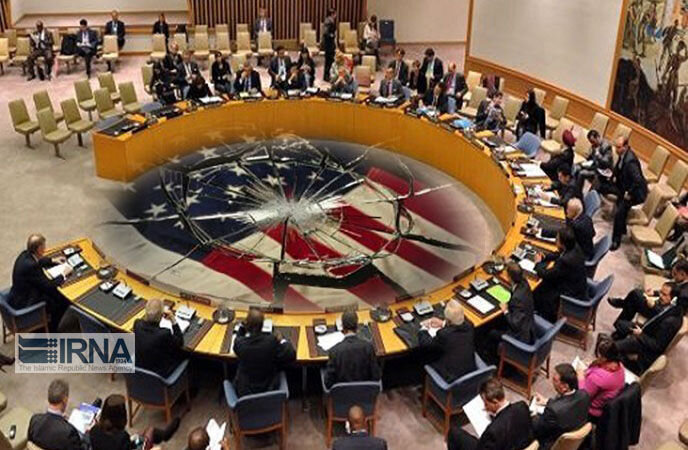TEHRAN – In an article published on Wednesday, South China Morning Post said the United States’ attempt to present itself as a participant to the 2015 nuclear deal, known as the JCPOA, has no future and is like a common sense mockery.
“The U.S. attempts to present itself as ‘JCPOA participant’ have no future. It is like common sense mockery. Those who invented this idea gave bad advice to U.S. authorities. Cynical approaches must have their own limits in order not to compromise national policy to the worst extent,” said the article written by Will Saetren.
An excerpt of the article, titled “Global outcry against U.S. call for sanctions ‘snapback’ on Iran was a long time coming”, reads as follows:
August 20, 2020. That was the day the U.S. Secretary of state Michael R. Pompeo swaggered up to a podium at the United Nations, proclaimed that up was down, unicorns were real, and that he could really go for some curry fish balls right about now.
I am, of course, exaggerating. But not by much. What Pompeo did was argue that the United States is legally entitled to enforce the technical provisions of an international agreement that it abandoned more than two years ago.
If that sounds confusing to you, it should. It is the political equivalent of quitting a job, not showing up to work for two years and insisting that you are entitled to your full salary because a contract once existed that listed you as an employee.
Signed in 2015, the Joint Comprehensive Plan of Action is a deal between the five permanent members of the UN Security Council and Germany on one side, and Iran on the other. This agreement includes strict monitoring and verification provisions that permanently cut off Iran’s ability to clandestinely develop nuclear weapons.
In exchange, all sanctions on Iran’s nuclear weapons-related activities were lifted, and Tehran received a pathway to rejoin the international community.
The deal received widespread international support and was considered a major foreign policy victory for the Obama administration. When Donald Trump took office in 2017, he set out to unravel his predecessor’s legacy, which included, against the advice of his own advisers and the pleas of the international community, the Iran nuclear deal.
On May 8, 2018, the Trump administration announced that it was “ceasing U.S. participation” in the agreement and reimposing sanctions against Iran. Trump insisted that he would negotiate “a better deal”, but two years later, no such deal has emerged.
Despite U.S. withdrawal, the deal has remained alive. The remaining signatories have upheld the vast majority of their commitments and the parameters remain intact.
On October 18, the arms embargo on Iran is set to expire, a key provision of the agreement that is intended to reward Tehran for five years of compliance.
On October 18, the arms embargo on Iran is set to expire, a key provision of the agreement that is intended to reward Tehran for five years of compliance.
With no better deal in sight, and pressure on Iran evaporating before its eyes, the Trump administration finds itself face to face with the failures of its policymaking and no credible options for bringing Iran back to the negotiating table.
That brings us to today’s desperate attempt at nonsensical diplomacy. Under UN Security Resolution 2231, which underpins the nuclear deal, participant states are entitled to implement a “snapback” mechanism, which reimposes all UN sanctions if Iran is in breach of the deal. It is a powerful tool, and it is the mechanism that the U.S. is attempting to leverage.
The U.S. attempts to present itself as “JCPOA participant” have no future. It is like common sense mockery. Those who invented this idea gave a bad advice to U.S. authorities. Cynical approaches must have their own limits in order not to compromise national policy to the worst extent.
There is only one problem. The U.S. is no longer a legal participant to the agreement. The Trump administration correctly pointed out that article 10 of resolution 2231 lists the U.S. as a participant of the agreement. This was true when the agreement went into effect, but it is not true now. By the Trump administration’s own admission, it has fully ended its participation in the agreement.
Within hours of Pompeo’s appearance at the UN, some of America’s longest-standing allies issued a joint statement rebuffing the attempt to activate the snapback mechanism. France, Germany and the UK noted that the U.S. had ceased to be a participant to the agreement following its withdrawal from it on May 8. “We cannot therefore support this action,” the statement said.
Russia also rejected the U.S. plans, calling them “non-existent” and “common sense mockery”.
China pushed back even harder, saying the U.S. demand “has no legal ground and common sense”. It noted the U.S. violated resolution 2231 by unilaterally withdrawing from the agreement and reinstating “illegal unilateral sanctions” against Iran. Having quit the agreement, the U.S. has “no right to demand the Security Council invoke a snapback”.
The voting outcome at the UNSC reveals that the U.S. unilateral positions go against the international consensus and that its attempt to sabotage the JCPOA is doomed to fail. We urge the U.S. not to act arbitrarily against the world’s will. Otherwise, it will meet further opposition.
Within 24 hours, 13 of the Security Council’s 15 members had rejected Washington’s bid to reimpose the international sanctions regime on Iran, a stunning defeat that the U.S. rarely experiences at the UN.
TAGS


No comments:
Post a Comment